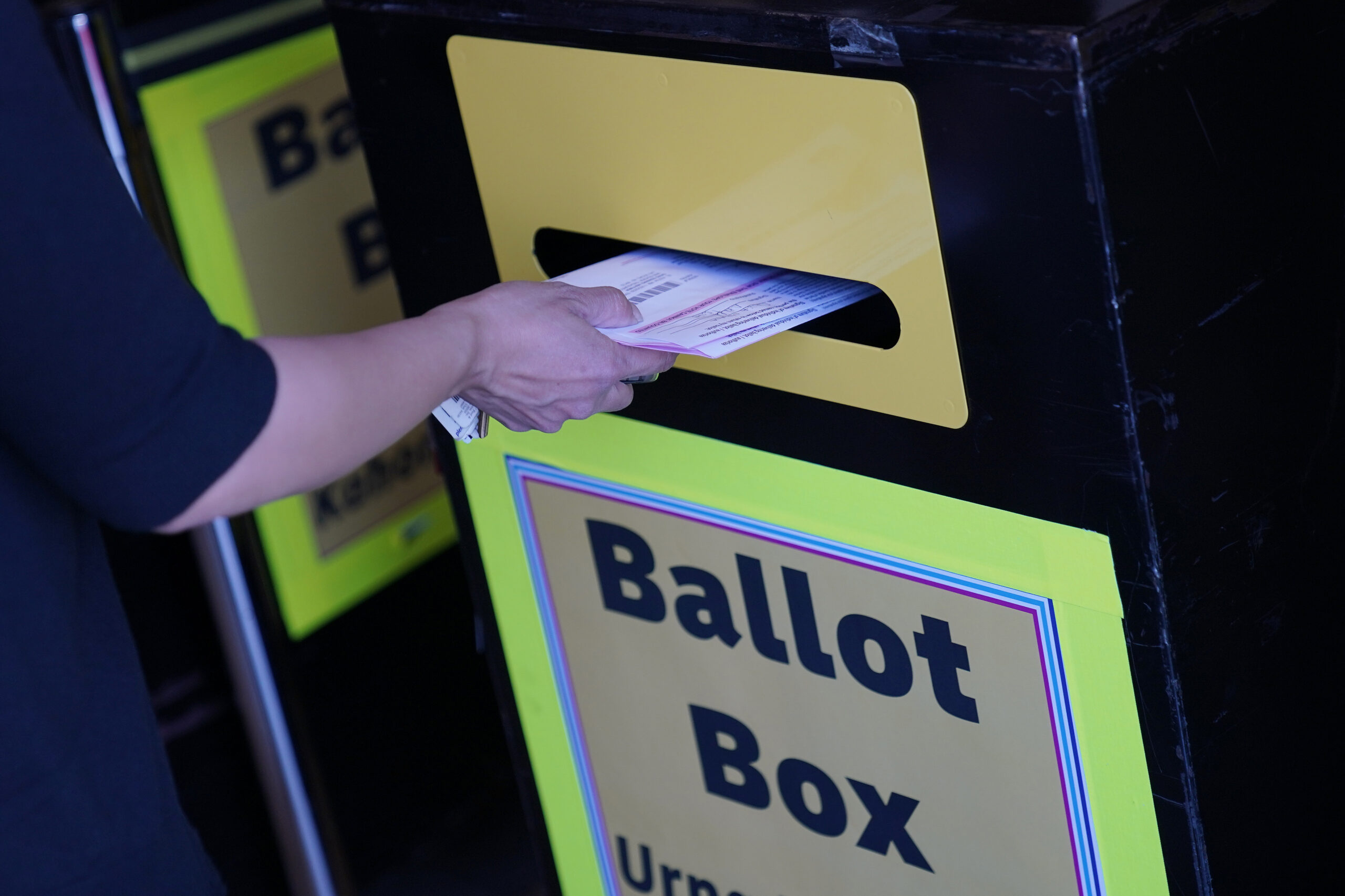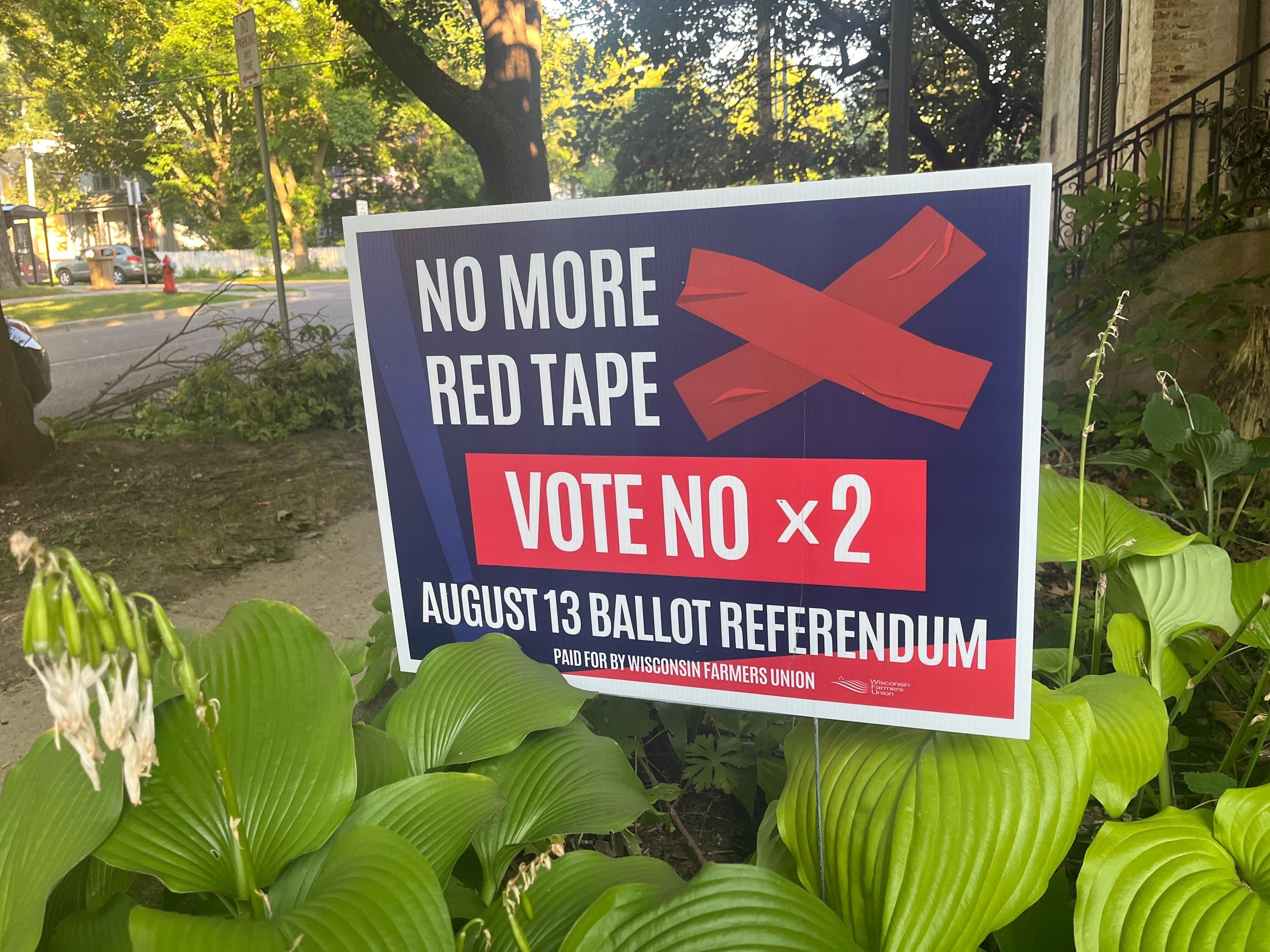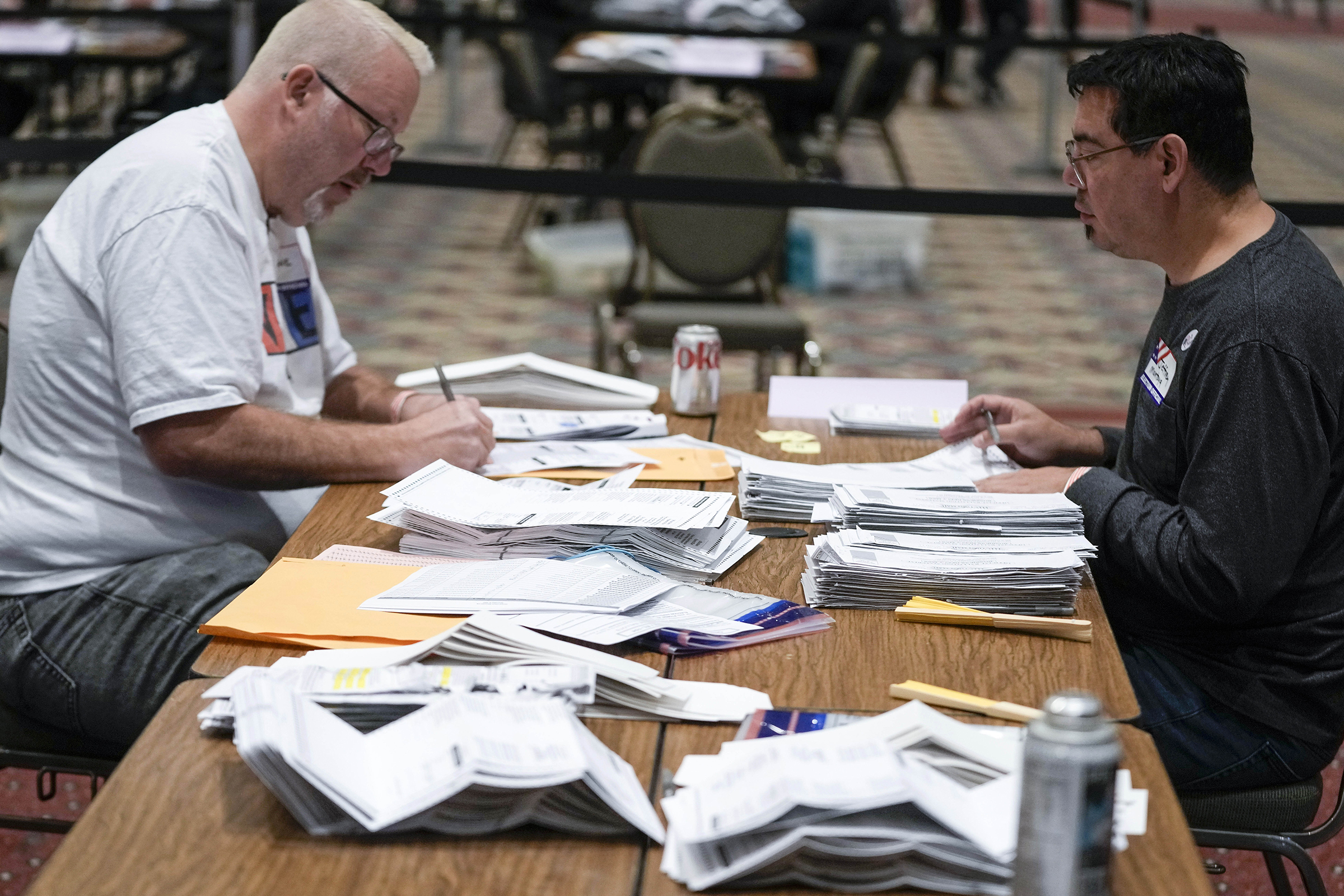Republican lawmakers are reviving a plan that would tighten rules around how election officials collect absentee ballots from nursing homes and care facilities, a response to a practice that came under scrutiny during the height of the COVID-19 pandemic and Wisconsin’s 2020 elections.
The proposal — one of a slate of Republican-authored election bills that received public hearings on Tuesday — would continue to allow election officials to send voting deputies into care facilities to help people who cannot vote in person. But the measure would require those meetings to be arranged at certain times and for residents’ relatives to be notified.
The bill would also require the Elections Commission to change a person’s voting status to inactive within two business days if they have been deemed incompetent to vote. The plan would define “incompetent” as a person who cannot understand what it means to cast a ballot or who is under guardianship. The WEC would also mark them as ineligible to vote, and notify both the individual and the clerk in their locality.
News with a little more humanity
WPR’s “Wisconsin Today” newsletter keeps you connected to the state you love without feeling overwhelmed. No paywall. No agenda. No corporate filter.
“Every session we work on bills to protect people from being exploited financially, but those protections should be extended to protect their rights during elections,” said Rep. Joel Kitchens, R-Sturgeon Bay, the bill’s co-author, at a hearing of the Assembly Committee on Campaigns and Elections.
Nursing home voting became a lynchpin of accusations of impropriety in Wisconsin’s 2020 elections, when the bipartisan Wisconsin Elections Commission, or WEC, voted that special voting deputies would not be able to enter those facilities because of COVID-19 concerns.
Former Supreme Court Justice Michael Gableman, who was hired by Assembly Republicans to investigate the 2020 election, claimed in his report that the WEC rule change led to the emergence of coerced votes from nursing home residents. Former President Donald Trump later alleged, without evidence, that those practices led to “thousands and thousands and thousands of crooked votes.”
Those claims did not stand up to multiple investigations and court challenges.
Last year, Gov. Tony Evers vetoed a shorter version of this proposal that only regulated the visits of the voting deputies, but did not include the measures about incompetency.
Janet Zander, the advocacy and public policy coordinator for the Greater Wisconsin Agency on Aging Resources, testified that the requirement to notify residents’ relatives about their absentee voting practices violated their privacy rights.
“We are just concerned that the use of special voting deputies shouldn’t impede the voter’s right to vote privately and independently,” she said. “I think it’s the voter themselves who has the right to determine who should be contacted and who should not be. And we shouldn’t be usurping that from those individuals who are capable and competent of making that decision.”
A slate of election proposals receive public hearing
The public also weighed in Tuesday on a host of other elections proposals, many of which reflected a new reality for election administration, after Trump and his allies sowed doubt about the outcome of the 2020 race, alleging without evidence that certain practices had allowed for widespread fraud to take place.
Those proposals include one that would make it easier for people to observe polling places. Election observers are already allowed at polling places and during the canvass of absentee ballots, and must be three to eight feet from the voters or counters. This bill would allow observers to get closer, and would levy a fine or possible jail time for observers who disrupt voting or electioneer.
The bill is opposed by the ACLU of Wisconsin, the City of Milwaukee, Common Cause Wisconsin and League of Women Voters.
Another proposal, four years in the making, would allow election workers to start processing absentee ballots early in places like Milwaukee that use a “central count” location for tabulating ballots. Currently, the count takes place on the morning of Election Day, and can continue till the wee hours of the night. In 2020, that offered fodder for Trump’s false claims that fraud took place under the cloak of night in the heavily Democratic city.
Lawmakers also heard testimony about a proposal to set an age cap of 75 on elected judges, another that would forbid candidates who lost a partisan primary to run a write-in campaign, and a third that would remove the governor’s power to fill vacancies in the offices of secretary of state, treasurer, attorney general, and state superintendent of public instruction without a Senate confirmation process. The bill on appointments follows Evers’ decision to appoint Secretary of State Sarah Godlewski following the abrupt retirement Doug LaFollette.
Proposed constitutional amendments also move forward
Prior to the public hearing, lawmakers also advanced three proposed constitutional amendments that would impact elections. The proposals would:
- Enshrine Wisconsin’s voter ID law, requiring a person to show photographic proof of identity before casting a ballot.
- Formally ban all non-citizens from voting.
- And ban the use of private funds for election administration.
Constitutional amendments must pass two consecutive sessions of the Legislature and then be approved by voters in an election. They are not subject to a governor’s veto.
The restriction on using outside funds and on non-citizen voting already passed the Legislature last session and could go before voters as early as next year. The voter ID amendment is being considered for the first time.
All three passed out of committee on Tuesday, which means they could be heading to the full Legislature for consideration.
Wisconsin Public Radio, © Copyright 2026, Board of Regents of the University of Wisconsin System and Wisconsin Educational Communications Board.







